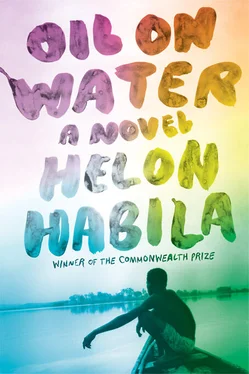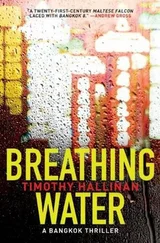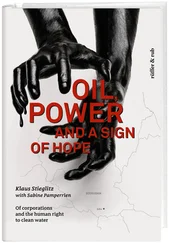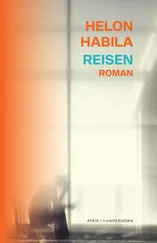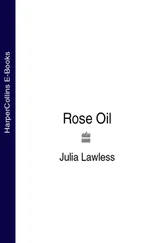Zaq allowed me to lead him back into the hut, still grumbling about ghosts. The shrine, as this section of the island was called, occupied the entire waterfront, with the hillock and the sculpture garden intervening between the huts and the water. The huts were arranged as if to form two lines on a rough isosceles triangle, with the sculptures occupying most of the middle space and the beach forming the third line. The first hut facing the statues was a sort of reception room, which was where we had first been hosted. Now we had been moved to another hut, a smaller one, just behind the reception hut. Not too far from us was the worship room. It was bigger than all the other huts, and a single wooden statue stood like a guard before the entrance. I could see men and women in white robes crowding together near the statue, waiting to go in for the evening service. The other side of the island was the village proper, about a mile away and separated from the shrine by a large buffer area of tall leafy trees. The villagers were all connected to the shrine by religion, and the chief priest had authority over the whole settlement. The villagers were fishermen, mostly, making their living on the river that poured its water into the sea, leading away upstream into a hinterland of marshes and forests and swamps.
As I led Zaq to the hut we would be sharing, we passed close to the worship hut and some of the men and women, now kneeling before the entrance, looked at us briefly as they waited their turn to go in. I wondered idly what religious ritual went on inside the hut, whether the tall impressive priest was seated on a chair before the shrine, handing out Communion wafers or whatever their equivalent of those might be, or whether there were mad orgiastic dances and trances — but I doubted the latter. These people didn’t look like the dance-and-trance type — they appeared remarkably composed and solemn.
Our hut was as spacious inside as the first one had been, even though it looked deceptively narrow from outside. A mat was laid out for me already, and across from it was Zaq’s mat, with his slippers in front of it and a worshipper’s white robe hanging from a nail above. He saw me looking at the robe and shook his head.
— I had to change into something. They were kind enough to wash my things for me.
— What kind of religion is it?
— No idea. The only thing I’m interested in right now is what their connection is to the militants.
My mat had a single sheet spread over it and a pillow where my head should rest. I removed my shoes and sat down. There was nothing else in the hut except for a water pot against the wall and a lamp hanging from a hook over the pot. Zaq lay on his mat, his eyes glittering, a sheen of sweat on his forehead. The whiskey bottle was down to half full.
— So, what news from the city?
I briefed him on my interview with Floode and handed him his money. He opened the envelope and let the money fall out all over his lap, then he looked at me and shook his head, laughing drunkenly.
— That is what I call good journalism.
I TOLD HIM of my visit to his editor, how I got to the offices of the Star very late in the afternoon, confident that no editor would leave the office until the next day’s paper had been put to bed. The office was next to a dump site, and facing it across the road was a police barracks. From the office’s dim and miserable interior one could hear a bugle calling the men to the parade ground, and one could smell the dump site. I found Beke Johnson eating from a lunch box on his desk; the box gave up a strong smell of burned palm oil and onions. A red stain shone brightly in the center of his blue tie. The office was narrow and long, like a corridor, and his desk was at one end, near the window that faced the barracks. On the table were files spilling out papers, an old computer, a stapler and a stone paperweight, all jostling for space with the lunch box. He ate with a loud, wet sound, his mouth open. It was an unremarkable place, with two unremarkable women working in front of two computers at the other end of the corridor.
The editor looked even more undistinguished in his rumpled, oversized suit and tie; he could be an apparatchik in some gray concrete ministry building. All he wanted to know after I had introduced myself was when Zaq would be returning. When I told him Zaq was ill, he looked skeptical.
— Tell him to hurry up and get well, otherwise I’ll stop his salary.
— I don’t think I will be seeing Zaq till he gets back.
The editor thought about that briefly, his mouth moving mechanically like a masticating ruminant’s, his eyes looking at me unhappily.
— Well, you must have a means of communicating with him, surely? By phone?
— No, phones don’t work on the island.
— Well. Did he give you his piece to bring to me? Nothing? What am I going to publish tomorrow? What kind of a reporter is that? Ah, he still thinks he is a star Lagos reporter. But he is lucky to be working for me.
— I can send you a few things — I have some pictures, and a few paragraphs.
— Well, make sure you do that as soon as you can. I have deadlines. I’m conscious of my obligations, unlike some people.
I felt sorry for Zaq, sorry that he had to work for such a dull, sour employer, and it was at that time that I realized how colossal Zaq’s fall from grace had been. When I stood up to go, he waved me back into the seat.
— Where are you going? Sit down. Let me tell you about your friend.
He pushed his lunch box aside and wiped his hands ineffectually with Kleenex. He leaned forward and once more waved me back to my seat, imperiously, impatiently.
— Once, he was the best.
— Yes, I know. He used—
— No. You don’t know anything. Listen. Did he tell you we were rookies together at the Daily Times ? Oh, he didn’t? Then did he tell you that we shared a flat in Surulere for one year? I was twenty-two, he was twenty-one. Ah, I can see us now. Green, wet behind the ears. Of course, there was nothing like journalism school then, you just finessed your way into things. I bet you went to a journalism school, didn’t you? They are useless. You learn nothing there. All you need is to open your eyes, make the right contacts, and be bold. Well, nothing like journalism school for us. You begin as a cub reporter, and if you survive, you become king of the jungle, or at least something high up on the food chain.
Beke drank from a water bottle, belched, and fished around with his tongue for strings of meat between his teeth. He wiped the sweat from his bald head.
— Well, Zaq and I were assigned to the news desk. In those days there was no specialization, no one cared if you wanted to cover the arts, or business, or news, the editor simply sent you wherever he wanted. We were assigned to news, but Zaq wanted something different. He was full of ideas, restless. At night he never slept. He wanted to do feature stories about everyday things, ordinary lives. But this was a different age, late seventies, early eighties, things were different then. People bought papers for news only, facts, or at least that was how the editor saw it. But Zaq wasn’t the kind of person to sit around waiting for things to change. He quit, just like that. Even I was taken by surprise. I remember the exact day, in 1982, it was a Monday, usually our busiest day, the newsroom was full, most of us were back from our beat and we were rushing to get our copy ready for the subeditors. The editor was there in a corner, berating one of the reporters, waving a piece of paper about, and then I saw Zaq get up from his desk and walk right up to him and call him by his name. Who dared call the editor by his name? It was unheard-of, and right in front of all the junior reporters and interns. He went right up to him and said, Tunde, I quit! And he walked out. Those days you didn’t need a resignation letter, reporters just wandered in and out of newsrooms.
Читать дальше
